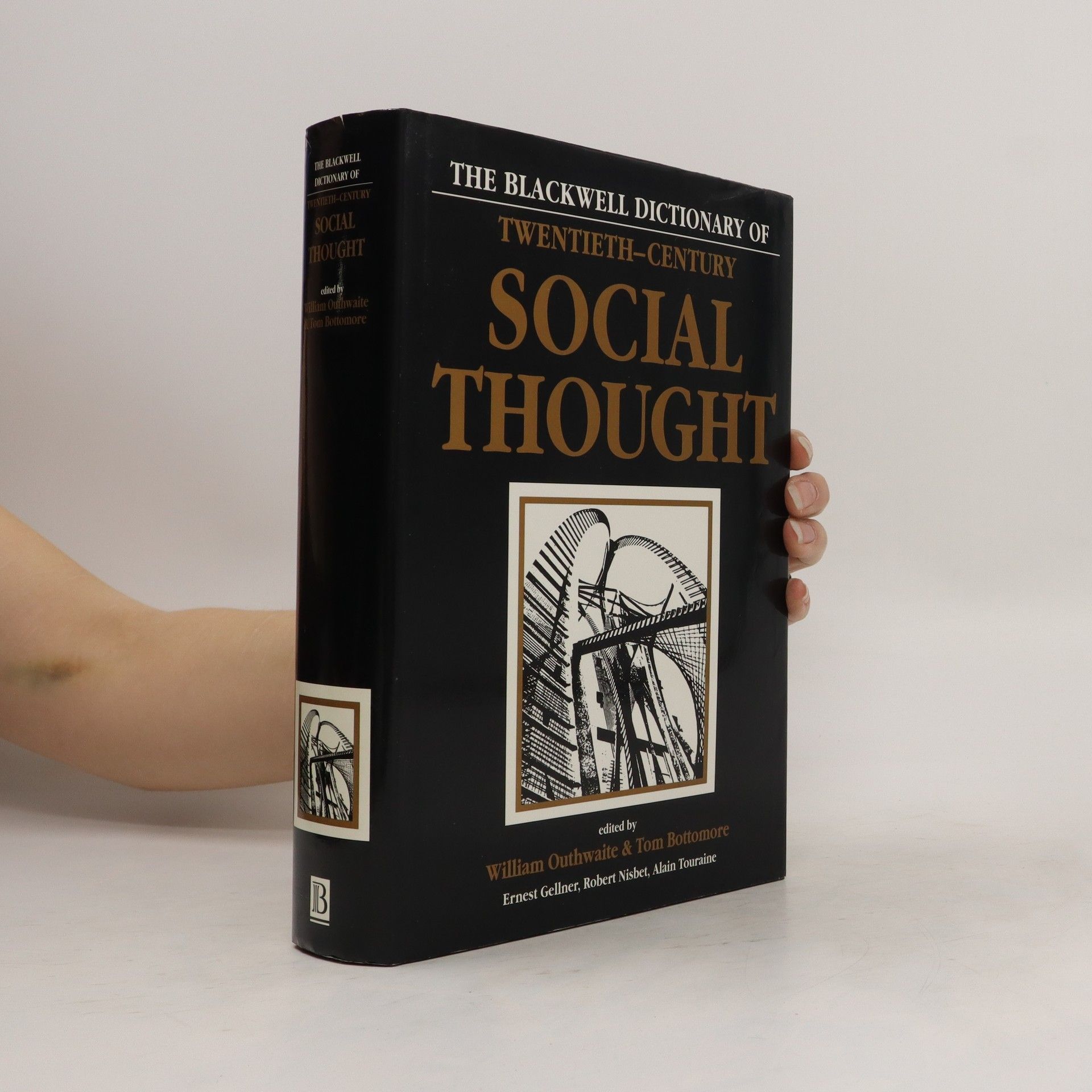Modern social thought ranges widely from the social sciences to philosophy, political theories and doctrines, cultural ideas and movements, and the influence of the natural sciences.Provides an authoritative overview of the main themes of social thought.Long essays and entries give full coverage to each topic.Covers major currents of thought, philosophical and cultural trends, and the individual social sciences from anthropology to welfare economics.New edition updates about 200 entries and includes new entries, suggestions for further reading, and a bibliography of all sources cited within the text.
William Outhwaite Books




Social Theory
- 176 pages
- 7 hours of reading
Social theory lets us understand the full complexity of the world we live - this book explains how.
Transregional Europe
- 152 pages
- 6 hours of reading
Focusing on the interplay between human geography, planning, and social sciences, this work explores public perceptions of European macro-regions alongside EU macro-regional planning. It offers insights into how these regions are understood and managed, highlighting the complexities of transregional dynamics within Europe. The book integrates historical perspectives to enrich the discussion, making it a comprehensive resource for understanding contemporary European spatial governance.
The Blackwell Dictionary of Twentieth-Century Social Thought
- 864 pages
- 31 hours of reading
Twentieth-century social thought ranges widely from the social sciences to philosophy, political theories and doctrines, cultural ideas and movements, and even the natural sciences. This Dictionary aims to provide a reliable and comprehensive overview of the the main themes of social thought, in particular the major concepts, principal schools and movements of thought, and those institutions that have been objects of social analysis or engendered significant doctrines and ideas. Long entries, by a collection of distinguished contributors, cover major currents of thought, philosophical and cultural trends and the individual social sciences are supplemented by shorter accounts of specific concepts and phenomema. Each entry has suggestions for further reading, there is a comprehensive bibliography of all books cited or referred to in the text, a general index, and an appendix covering the major social thinkers with brief biographical notes.